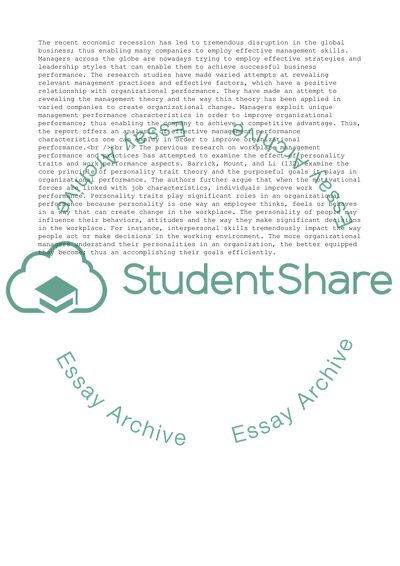Cite this document
(Characteristics of High Performance Organizations Term Paper - 1, n.d.)
Characteristics of High Performance Organizations Term Paper - 1. Retrieved from https://studentshare.org/management/1619023-compose-a-report-on-management-performance-characteristics
Characteristics of High Performance Organizations Term Paper - 1. Retrieved from https://studentshare.org/management/1619023-compose-a-report-on-management-performance-characteristics
(Characteristics of High Performance Organizations Term Paper - 1)
Characteristics of High Performance Organizations Term Paper - 1. https://studentshare.org/management/1619023-compose-a-report-on-management-performance-characteristics.
Characteristics of High Performance Organizations Term Paper - 1. https://studentshare.org/management/1619023-compose-a-report-on-management-performance-characteristics.
“Characteristics of High Performance Organizations Term Paper - 1”, n.d. https://studentshare.org/management/1619023-compose-a-report-on-management-performance-characteristics.


